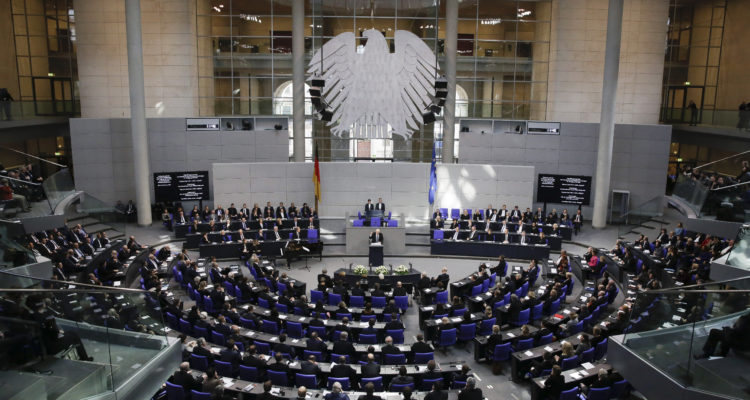Israel’s president told the German parliament that the onus of responsibility to continuously be a beacon for the world in standing up to anti-Semitism falls on them.
By World Israel News Staff
In a rare event, Israel’s president addressed the German parliament on Wednesday in a special sitting to commemorate the victims of the Holocaust 75 years later.
Before speaking about the Holocaust and the relationship between Israel and Germany, President Reuven Rivlin recited the Jewish Yizkor prayer, a blessing dedicated to the memory of the deceased.
“I was born in Jerusalem, in September 1939. When the gates of the death camps were opened, my friends and I started first grade We knew little of the scale of the atrocity,” Rivlin said. “Slowly, we met survivors. We heard testimonies. On them, we saw for the first time, the numbers on the arm.”
“In the beginning, we thought that they had lost their minds. Slowly, we realized that it was the world that had gone mad,” he said.
According to Rivlin, a new page has been turned over ever since Germany accepted responsibility for their crimes and has been standing up against Holocaust denial and anti-Semitism.
“That same country that was the terror of the free world became a beacon for democracy and liberalism, for responsibility and moderation,” he said.
Israel’s president told the German parliament that the onus of responsibility to continuously be a beacon for the world in standing up to anti-Semitism falls on them.
“If Germany fails in trying to prevent the disaster [of rising anti-Semitism], others everywhere are likely to fail. If, in the place that the Holocaust was born Jews cannot live freely, then they cannot live free of fear anywhere in Europe,” Rivlin said.
“Israel and Germany walk together with tension and with courage between past and present and between the obligation to remember and never to forget,” he added.
Rivlin also addressed President Trump’s proposed Mideast peace plan by saying its success is dependent on the ability of both sides to trust one another.
“The future of the Middle East and the integration of Israel in the region hinges on building this trust,” he said.





